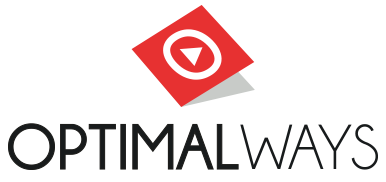

Optimal Ways

Nord-Pas-de-Calais, France
May 2024
Other info service activities
Service with Minor Environmental Footprint
Australia,
Belgium,
Brazil,
Canada,
Czech Republic,
Denmark,
France,
Germany,
Greece,
Ireland,
Italy,
Luxembourg,
Netherlands The,
Norway,
Poland,
Portugal,
Singapore,
Spain,
Sweden,
Switzerland,
United Kingdom,
United States
Optimal Ways is an agency dedicated to Digital Analytics for e-commerce and retail. We proudly support our clients in France and around the world, offering our expertise in both French and English. Our mission is to empower and train e-commerce teams, helping them make informed decisions through a sustainable and responsible approach. As an independent and trustworthy third party, we remain focused solely on Digital Analytics, ensuring our clients receive unbiased support. We partner with leading market solutions in Digital Analytics (Adobe Analytics, Google Analytics, and Piano Analytics), Tag Management (Google Tag Manager, TagCommander, and Tealium), UX Analytics (Contentsquare and Microsoft Clarity), and Consent Management (Didomi, OneTrust, and TrustCommander). Founded in 2011 by Nicolas Malo, Optimal Ways has grown into a close-knit team of a dozen consultants. We also rely on a global network of experts and partners to provide comprehensive support. We are proud members of the 1% for the Planet collective, demonstrating our commitment to a CSR approach. We passionately support start-ups and associations within the social and solidarity economy (SSE), striving to make a positive impact together.
Overall B Impact Score
Governance 14.0
Governance evaluates a company's overall mission, engagement around its social/environmental impact, ethics, and transparency. This section also evaluates the ability of a company to protect their mission and formally consider stakeholders in decision making through their corporate structure (e.g. benefit corporation) or corporate governing documents.
What is this? A company with an Impact Business Model is intentionally designed to create a specific positive outcome for one of its stakeholders - such as workers, community, environment, or customers.
Workers 37.8
Workers evaluates a company’s contributions to its employees’ financial security, health & safety, wellness, career development, and engagement & satisfaction. In addition, this section recognizes business models designed to benefit workers, such as companies that are at least 40% owned by non-executive employees and those that have workforce development programs to support individuals with barriers to employment.
Community 20.3
Community evaluates a company’s engagement with and impact on the communities in which it operates, hires from, and sources from. Topics include diversity, equity & inclusion, economic impact, civic engagement, charitable giving, and supply chain management. In addition, this section recognizes business models that are designed to address specific community-oriented problems, such as poverty alleviation through fair trade sourcing or distribution via microenterprises, producer cooperative models, locally focused economic development, and formal charitable giving commitments.
Environment 11.7
Environment evaluates a company’s overall environmental management practices as well as its impact on the air, climate, water, land, and biodiversity. This includes the direct impact of a company’s operations and, when applicable its supply chain and distribution channels. This section also recognizes companies with environmentally innovative production processes and those that sell products or services that have a positive environmental impact. Some examples might include products and services that create renewable energy, reduce consumption or waste, conserve land or wildlife, provide less toxic alternatives to the market, or educate people about environmental problems.
Customers 5.7
Customers evaluates a company’s stewardship of its customers through the quality of its products and services, ethical marketing, data privacy and security, and feedback channels. In addition, this section recognizes products or services that are designed to address a particular social problem for or through its customers, such as health or educational products, arts & media products, serving underserved customers/clients, and services that improve the social impact of other businesses or organizations.
What is this? A company with an Impact Business Model is intentionally designed to create a specific positive outcome for one of its stakeholders - such as workers, community, environment, or customers.